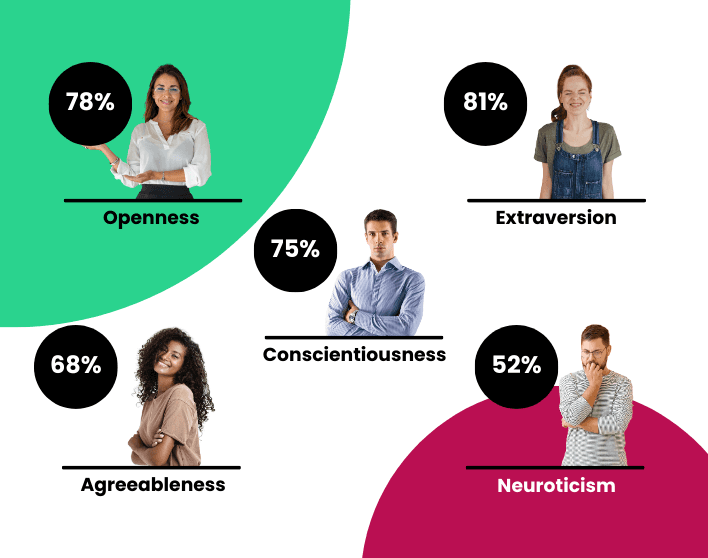The Bryq Team
HR Experts
Gender discrimination has been one of the most talked-about workplace bias subjects and one that is usually encapsulated and packaged around stereotypes. Women are caring, helpful and friendly while men are confident, independent and risk-takers. Needless to say that this has led to biased decisions when it comes to hiring. Such stereotypes have consequences, such as being passed over for a promotion or not being selected as a potential candidate for a specific job, to name a few. Are there cognitive and personality differences between genders?
Let’s look at a specific example: in the 1970s, the Boston Symphony Orchestra (BSO) instituted a blind audition process to combat their lack of gender diversity. These auditions increased the likelihood that a woman would be hired by between 25 and 46 percent. Over time, the effects of the program became clear: more and more women applied, increasing the overall skill, talent and quality of the BSO’s application pool.
Gender differences? Data tells all
Within Bryq, we analyzed an anonymized and cleaned data set of more than 15,000 individuals from both sexes from the same period. Our purpose was to find differences in the distribution of skills and personality traits between men and women — in other words, to assess whether a single dataset could provide any evidence for the often perceived differences between males’ and females’ typical traits and skills.
There are common myths around gender, and the analysis we present demystifies them solely through a fair and accurate assessment process. In fact, the data shows that there is no significant difference in either cognitive skills or personality traits that could be linked to gender.
Our analysis showed that there are no significant differences between the sexes in terms of both skills and personality. Typically ‘masculine’ skills such as numerical or logical reasoning were shown to be equally developed in both sexes:

[Source: Bryq internal analysis]
Personality traits normally prone to unconscious bias, such as dominance and sensitivity, were also shown to be equally present in both sexes, when assessed by means of Bryq’s platform:

[Source: Bryq internal analysis]
Using the Bryq platform, we found that when we truly test candidates on the things that matter, skills and personality traits were distributed almost identically between men and women. There were no areas in which one sex had a statistically significant difference from the other. Yet hiring processes are still falling victim to unconscious bias, which is more likely to ascribe certain strengths or weaknesses to men and women — and we were happy to confirm that the mythology that is prevalent simply didn’t bear up to any scientific analysis.
Incidentally, the US Naval War Academy, in a similar research found no gender differences in objective measures (e.g. grades, class standing) - but again a completely different picture when looking at subjective evaluations.
With one 2018 study estimating that the gender wage gap costs the UK economy up to £123 billion annually, there is now compelling evidence that it is in the interests of both sides of the hiring process, employers and candidates, to do more to end the perception of differences in ability between the genders. Advancing women’s equality, according to McKinsey, could actually add $12 trillion to global growth.
Empowering your process through the right technology
A platform like Bryq has no input for discriminating factors such as race, sex, age, making the screening process both blind and equitable, as all candidates go through the same process allowing them to showcase themselves and not a document of past experience.
Structural change, assisted by technology, in the recruitment process has the potential to make a lasting difference in society. So next time you hear “Women do not make great sales people” or “Men are better at math”, you have the data to disprove it!








